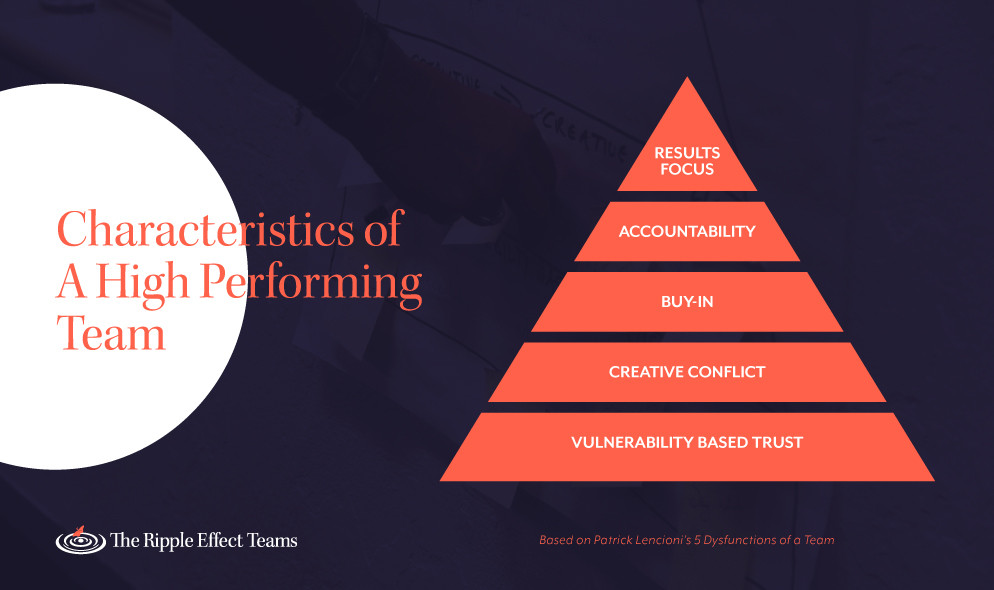
Stories Talk | Presentation Skills and Effective Storytelling
Stories Talk | Presentation Skills and Effective Storytelling
In the summer of 2021 the ignite80 team (www.ignite80.com) that studies leadership behaviors and strategies for business leaders worldwide and was founded by PhD and award-winning psychologist, Ron Friedman, collaborated with the communication software company, Front, for an important study. The survey examined what high-performing teams actually do and used a sample of 1,106 employees at US companies.
By Mia Kollia
Translated by Alexandros Theodoropoulos
According to the extremely interesting results for creating high-performance teams, 3 psychological factors are necessary: autonomy, performance and connectedness. Decades of research have proven that when people feel psychologically balanced and safe, they tend to be healthier, happier and more productive.
Managers and HR professionals agree that the desire for team members to feel connected to each other is always the biggest challenge and difficulty. Attracting talented employees is already an issue but how exactly do you get them to connect with each other?
The coronavirus pandemic has increased the degree of difficulty in cultivating people's connection. While working from home was a boon for autonomy, the lack of physical contact made it exponentially more difficult to form close personal bonds.
However, the research shows that the highest-performing teams found ways to leverage social connections during the quarantine to fuel their progress. The findings offer important clues about ways that organisations can follow to promote interconnectedness and create high-performing teams.
During the survey, respondents were asked to (1) rate their team's effectiveness and (2) compare their team's performance to other teams in their industry. Employees who rated their team 10 out of 10 on both items were designated as members of high-performing teams, allowing us to compare their behavior with that of others. So what do high-performing teams do differently? Our study revealed five key differences, all of which highlight the vital role of the close connection between colleagues as a driver of team performance.
While phone calls are becoming less frequent in the workplace and being replaced by e-mails, this is not the case among high-performing teams. The survey found that they tend to communicate more frequently and are significantly more likely to communicate using the phone than their less successful colleagues (10.1 vs. 6.1 calls per day, on average).
That makes sense. Recent studies have shown that while most people think that phone calls can be awkward and uncomfortable, this is a misconception. Phone calls tend to strengthen relationships and prevent misunderstandings by contributing to more fruitful interactions between team members.

It's no secret that poorly organised meetings contribute to employee dissatisfaction, drain their concentration, and cost companies a lot of money.
Research findings demonstrate that high-performing teams avoid the pitfalls of poorly organised meetings by incorporating practices that encourage more productive gatherings. In particular, they are much more likely to require advance work from participants, introduce an agenda, and start with a progress check that will inform each team member of the progress of the others.
By ensuring that the time they spend together is efficient and collaborative, high-performing teams not only make better use of their meetings, but also cultivate the ground for more fruitful interactions, contributing to better relationships.
An executive may not want to spend time on workplace conversations that are not work-related. What benefit can there be in employees spending valuable work time discussing a major sporting event or an Oscar-winning movie?
And yet, research suggests that such seemingly irrelevant conversations can offer significant benefits. This is because in personal conversations we identify common interests, which fosters deeper empathy and authentic connections.
The study found that high-performing team members are much more likely to spend time at the office discussing non-work topics with their co-workers—topics that may involve sports, literature and family. They are also significantly more likely to have met their colleagues for coffee or drinks in the past six months.
In other words, the best teams aren’t more efficient because they are constantly working but instead, they invest time in connecting in genuine ways, which results in closer friendships and better teamwork.
A key reason the need for connection contributes to better performance at work is that it makes us feel valued, respected, and recognised for our effort by those from whom we expect the same. That's why recognition is often a stronger motivator than money.
In the study, members of high-performing teams reported receiving more frequent signs of appreciation at work both from their peers and their managers. And more importantly, they also reported expressing appreciation to their colleagues more often, suggesting that in the best teams, appreciation doesn't flow from the top down. It is a cultural norm observed in interactions between peers.
In the study, members of high-performing teams were significantly more likely to express positive feelings toward their coworkers. They reported that they were more likely to give a compliment or joke with each other.
Interestingly, however, they were also more likely to express negative feelings at work. They found it easier to swear, complain or be sarcastic with their colleagues.
Why might expressing negative emotions at work yield more positive performance? Because the alternative to expressing negative emotions is hiding them and trying to hide our emotions from others suppresses and ultimately distracts us, leaving less mental energy to do our work.
Authenticity also increases team performance. Needless to say that, many times, expressing negative feelings in the office isn’t helpful or appropriate. What the study's findings suggest is that, when team members experience the psychological safety to express their full range of emotions with their colleagues, overall team performance tends to benefit.